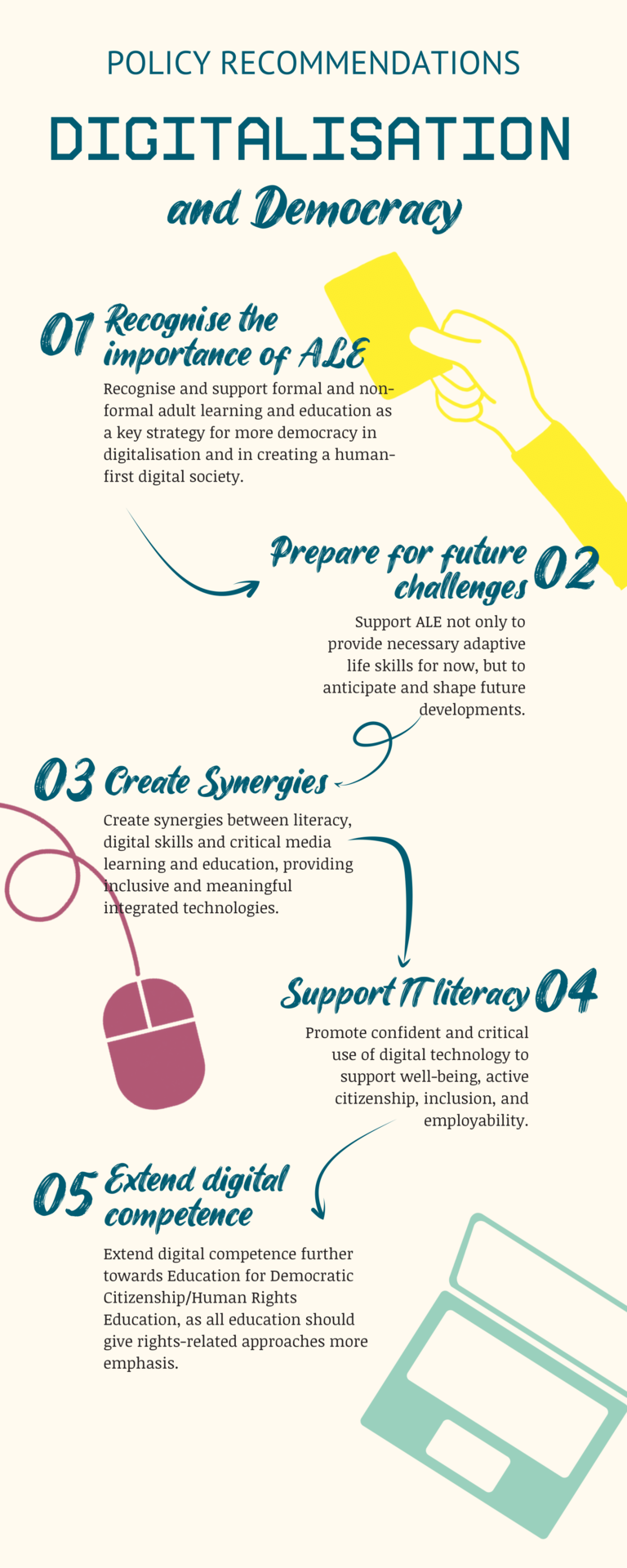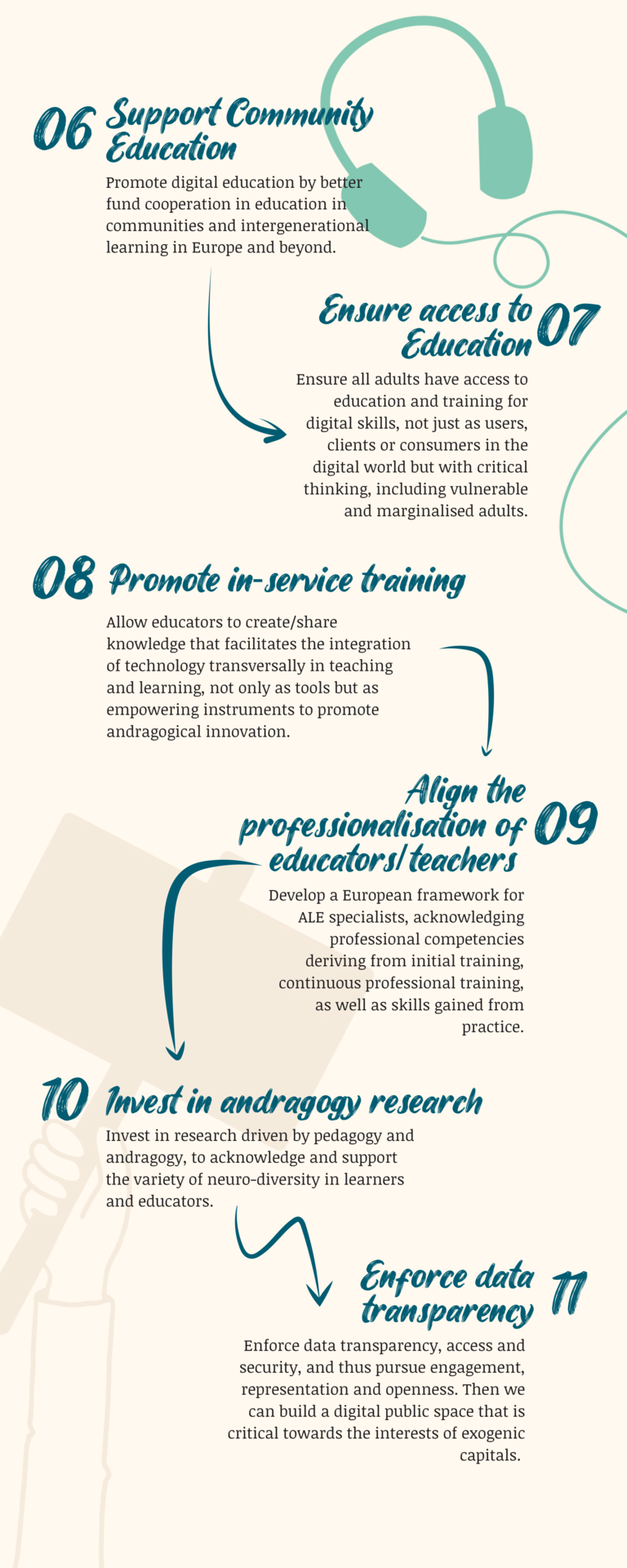Digitalisation and democracy
An opportunity to re-establish the role of democracy in digitalisation and in the context of ALE

Digitalisation and its relation to democracy is a topic that increasingly unfolds its duality, especially in the context of adult learning and education (ALE). As adult educators we are required to reconsider the interlinkages between digital competences in adult education and the digitalisation of our practical work. This should be done holistically, with the implementation of democratic access and citizen participation. It is essential to realise how digitalisation can act as a means toward democracy education, open access, outreach and accessibility, and as a topic that in its core can promote a new age of autonomous and experiential active participation.
Context paper: “Digitalisation and Democracy”
With this very sentiment in mind, the context paper on “Digitalisation and Democracy” was written by the Digitalisation Working Group (DigiWG) which is coordinated by the European Association for the Education of Adults (EAEA) and includes partners from Greece[1], Romania[2], Portugal[3], Germany[4], and Austria[5].
The DigiWG realized that a key element in re-establishing the role of digitalisation in the practice and in the policy of ALE is to recognize that the ALE community should claim ethical and democratic practices in the digital public sphere through open discussion and the publishing of the context paper on “Digitalisation and Democracy”.
The changing notion of public spaces
In order to achieve ethical and democratic practices in the public sphere, different chapters of the paper consider the concept of democracy and how it works within the context of digitalisation, within the power conditions and dynamics of the digital space, as well as within digital politics and digitalisation in the public space. According to the research carried out, the lively discussions in the DigiWG, and the experience of the authors’ own access to the digital world, traditional sites of democracy-assemblies have been enlarged and the notion of public space has been fostered. This leads to the necessity of considering how the digital power shift has created actual digital public spaces; what kind of dynamics are created and maintained therein; and how citizens in a democracy are incorporated, occupy space, struggle for access to physical resources, and engage democratically in physical spaces at least as much as they engage with ideas in virtual space.
The paper also discusses digital rights in Europe and addresses digitally excluded groups, focusing on access, motivation, knowledge and behaviours that are shaped or are affected by the digital divide. We look closely at adult learners, teachers and educators, their digital competences as well as the role of ALE in democracy and digitalisation, both by acting to democratize the digital divide and make a case for multiple and critical literacies.
Shaping the digital space through ALE
Understanding and recognizing our realities is essential in order to properly advocate and claim the change we aim to see in the future of Europe. To start the conversation in that context, the paper closes with some key policy recommendations highlighting the need to recognise and support the role of ALE, promote confident and critical use of digital tools, enforce data transparency, access and security, promote digital citizenship and extend digital competence to the domain of education for democratic citizenship/human rights education.
Attention can also be paid, among other things, to funding and the support of learning and education in communities, creating synergies between literacy, digital skills and critical media learning and education, bridging the accessibility gap, promoting in-service training, and developing communities of practice. Communities of practice need to be presented with a real perspective and an understanding that technologies exist to serve learning and education, and to empower learners and educators, not to be the domain of centralised systems of bureaucratic control.
Read the context paper "Digitalisation and Democracy"
[1] Dafni Kek
[2] CPIP Romania
[3] Associação Portuguesa para a Cultura e Educação Permanente (APCEP) and Câmara Municipal de Lisboa
[4] Arbeitskreis deutscher Bildungsstätten (AdB) and the German Institute for Adult Education (DIE)
[5] Lernraum.Wien




